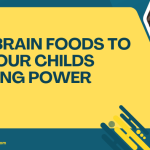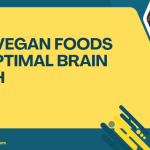Introduction
As we age, maintaining our brain health becomes increasingly important. Our cognitive function can be influenced by various factors, and nutrition plays a crucial role. A balanced diet rich in essential nutrients can help fend off cognitive decline, improve memory, and enhance overall brain function. In this article, we will explore the top five nutritional needs for seniors’ brain health, providing insights into how these nutrients can make a difference.
“Nutrition is the cornerstone of brain health, especially as we age. Investing in a nutrient-rich diet can yield lifelong benefits.”
1. Omega-3 Fatty Acids
Omega-3 fatty acids are essential fats that the body cannot produce on its own, making it vital to obtain them through diet. They are particularly important for brain health, as they support the structure of brain cells and facilitate communication between them.
Benefits:
- Memory Improvement: Studies suggest that omega-3s can enhance memory and cognitive function. They are particularly effective in reducing the risk of Alzheimer’s disease and dementia.
- Mood Regulation: Omega-3s have been linked to improved mood and reduced risk of depression, which is essential for overall mental well-being.
Sources:
- Fatty fish like salmon, mackerel, and sardines
- Walnuts
- Flaxseeds and chia seeds
Incorporating these foods into your diet can be as simple as enjoying a piece of grilled salmon once a week or adding flaxseed to your morning smoothie.
“Did you know? Just one serving of fatty fish per week can significantly lower your risk of cognitive decline.”
For more insights on brain health strategies, check out our article on Top 5 Lifestyle Changes for Better Neuro Health.
2. Antioxidants
Antioxidants are compounds that help combat oxidative stress and inflammation, both of which can negatively impact brain health. They work by neutralizing free radicals, which are harmful molecules that can lead to cellular damage.
Benefits:
- Brain Protection: Antioxidants such as vitamins C and E have been shown to protect against cognitive decline and memory loss.
- Enhanced Cognitive Function: A diet rich in antioxidants can improve overall brain function and delay the onset of neurodegenerative diseases.
Sources:
- Berries (blueberries, strawberries)
- Dark chocolate
- Leafy greens (spinach, kale)
To boost your antioxidant intake, consider snacking on a handful of berries or enjoying a piece of dark chocolate (70% cocoa or higher) as a treat.
“Remember: The brighter the fruit or vegetable, the higher the antioxidant content!”
For more on how to enhance brain health through nutrition, see our article on Top 5 Foods to Enhance Your Brain Health Naturally.
3. B Vitamins
B vitamins, including B6, B12, and folate, are vital for brain health. They play a crucial role in energy production and the synthesis of neurotransmitters, which are essential for communication between brain cells.
Benefits:
- Cognitive Function: Adequate levels of B vitamins can help maintain cognitive function and reduce the risk of age-related decline.
- Mood Stability: These vitamins are linked to mood regulation, potentially reducing the risk of depression.
Sources:
- Whole grains
- Eggs
- Dairy products
- Leafy greens and legumes
Including a variety of these foods in your diet can easily support your B vitamin intake. For example, start your day with a bowl of oatmeal topped with some spinach and a poached egg!
“Tip: A small serving of legumes or whole grains daily can significantly boost your B vitamin levels!”
For more insights on the role of nutrition in neuro care, visit Top 5 Essential Tools in Neuro Care You Should Know.
4. Vitamin D
Vitamin D is known for its role in bone health, but it is also essential for brain function. It helps regulate mood and cognitive abilities, and a deficiency can lead to several mental health issues.
Benefits:
- Cognitive Health: Research suggests that low levels of vitamin D are associated with an increased risk of cognitive decline and dementia.
- Mood Enhancement: Vitamin D can also play a role in mood regulation, potentially reducing feelings of depression and anxiety.
Sources:
- Sunlight exposure
- Fatty fish
- Fortified foods (milk, orange juice)
To ensure you’re getting enough vitamin D, try to spend some time outdoors in sunlight, or consider fortified food options. If necessary, consult with your healthcare provider about supplementation.
“Just 15 minutes of sunlight a day can help boost your vitamin D levels!”
For more on the intersection of nutrition and mental health, check out Top 5 Neurological Disorders Impacting Mental Health.
5. Hydration
Staying hydrated is often overlooked in discussions about nutrition, yet it’s a crucial aspect of brain health. Dehydration can lead to cognitive impairment, mood swings, and fatigue.
Benefits:
- Cognitive Function: Even mild dehydration can affect concentration and short-term memory.
- Mood Regulation: Proper hydration is essential for maintaining a stable mood.
Tips for Staying Hydrated:
- Drink water consistently throughout the day.
- Incorporate hydrating foods like cucumbers, oranges, and soups into your meals.
“Fun fact: Foods like watermelon and cucumbers can contribute significantly to your daily hydration!”
Remember, hydration needs may increase with age, so keep a water bottle handy to sip during the day.
For additional tips on wellness routines, visit Top 5 Ways to Integrate Neuro Care into Wellness Routine.
FAQs
Q: How can I improve my diet for better brain health?
A: Focus on incorporating foods rich in omega-3 fatty acids, antioxidants, B vitamins, vitamin D, and ensure you stay hydrated. A balanced diet filled with colorful fruits and vegetables can also help.
Q: Are supplements necessary for seniors?
A: While it’s best to get nutrients from food, some seniors may benefit from supplements, especially for vitamin D or B12. Always consult with a healthcare provider before starting any new supplement.
Q: Can diet alone prevent dementia?
A: While a balanced diet can significantly contribute to brain health, it is not a guarantee against dementia. A holistic approach that includes mental exercise, physical activity, and social engagement is also important.
Conclusion
Maintaining brain health as we age is a multifaceted endeavor, and nutrition plays a pivotal role. By focusing on omega-3 fatty acids, antioxidants, B vitamins, vitamin D, and hydration, seniors can support their cognitive function and overall well-being. Remember, small changes in your diet can lead to significant benefits. Always consult with a healthcare professional for personalized advice tailored to your specific health needs.
“Every bite counts! Nourish your brain with the right foods for a healthier future.”
For further reading on nutrition and brain health, check out Neuro Care: A Guide to Brain Health.
This updated article includes current insights for 2024 and 2025, and incorporates internal links, as well as additional annotations, to enhance user experience and provide further resources.






